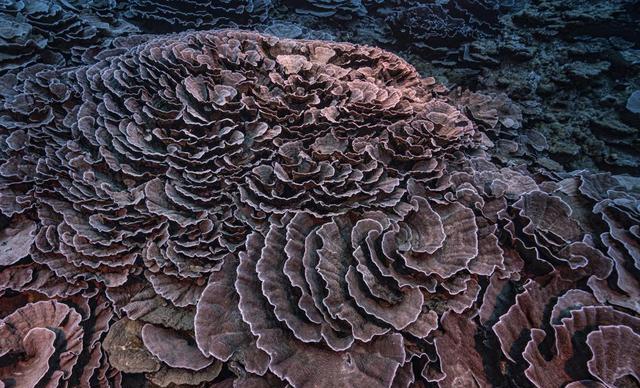
Deep in the South Pacific, scientists explored a rare stretch of pristine coral off the coast of Tahiti, shaped like a rose. The reef is considered one of the largest to be found at such depths and appears to be unaffected by climate change or human activity.
Laetitia Hédouin said she first saw corals a few months ago on a recreational dive with a local diving club.
"When I first went there, I thought, 'Wow — we need to look at that reef, and there's something special about that reef,'" said Hédouin, a researcher at the French National Center for Scientific Research in Moraea, French Polynesia.
To Hédouin's shock, the corals looked healthy and unaffected by the 2019 bleaching event. Corals are tiny animals that grow in oceans around the world and form coral reefs.
Globally, coral reefs are depleted by overfishing and pollution. Climate change is also damaging vulnerable corals — including those in areas near newly discovered reefs — with severe bleaching caused by warm waters. According to a 2020 report by the Global Coral Reef Monitoring Project, 14% of the world's corals were killed between 2009 and 2018.
The newly discovered reef stretches for 2 miles (3 kilometers) and was studied late last year during a UNESCO-supported diving expedition. Unlike most of the map corals found in relatively shallow waters around the world, this coral is deeper — between 115 feet (35 meters) and 230 feet (70 meters).
Exploring such depths presents a challenge: the deeper a diver is underwater, the shorter the time that can be spent safely at each depth. The team was equipped with special tanks and underwent a 200-hour dive to study the reef, including taking photos, measurements and samples of the corals.
The reef is located where many researchers don't spend a lot of time, said Mark Eakin, a former Oceanic and Atmospheric Administration oceanographer.
"As the technology is applied to these locations, we will see more such discoveries," Eakin said. "We might find some bigger reef somewhere, but I think it's always an unusual reef."
Hédouin said the recent eruption in Tonga triggered Pacific tsunami waves, but it did not affect coral reefs near Tahiti.
Hédouin hopes the study could help experts understand how coral reefs are adapting to climate change and human pressures, and the role these deeper corals may play in marine ecosystems. More dives are planned in the coming months.
"We know very little about the oceans and there is a lot to document and measure," said Julian Barbière, UNESCO's Head of Coordination for Ocean Policy and Regions.